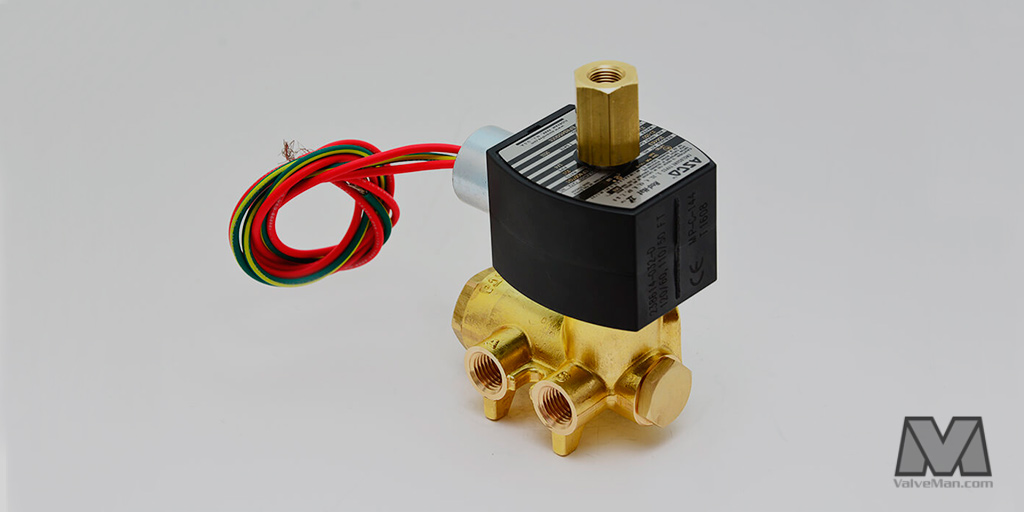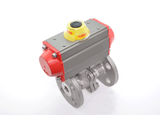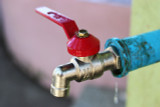4 Way Valves

In the world of fluid controls, 4 way valves are the workhorses that ensure optimal functioning and control. Popular across many industries, they play a key role in managing the flow of liquids, gases, or steam within various systems. Standing out amongst other valve types due to their ease of use, durability, and versatility, 4 way valves are essentially devices that incorporate four ports into their design, two more than the common 2 way valves. These include two inlet ports, one being the pressure or supply port and the other serving as the exhaust port, and two outlet ports which connect to the actuator.
Simply put, a 4 way valve consists of a casing containing an internal mobile component (either a ball or a disk), which rotates or slides to adjust the formation of the internal passages and subsequently control the flow through the valve. These valves can support various configurations allowing you to either divert flow between different sources or mix various fluids.
From brass, through bronze, all the way to PVC valves, you can be sure to find the 4 way valve you’re looking for easily at ValveMan.
How Do 4 Way Valves Work?
The functionality of a 4 way valve revolves around its design. Generally, these valves are operated manually, pneumatically or electrically using an actuator. Electrically actuated valves are preferred when precision in control is essential.
The operation involves shifting the valve's internal component to align with specific ports opening or closing them as required. For instance, in a typical setup with an actuator, when the actuator is in a neutral position, the valve blocks flow from the pressure port to both cylinder ports while allowing flow between each cylinder port and exhaust. As the actuator moves either forward or backward, this opens the corresponding path from pressure port to one cylinder port and from the other cylinder port to exhaust.
This structural shifting accommodates both simple shutoff functions as well as complex control scenarios facilitating precise regulation of fluid direction and flow velocity.
Where Are 4 Way Valves Used?
Given their versatility, 4 way valves have a broad range of applications across a multitude of industries. They are commonly utilized in industries such as hydraulics, HVAC systems, water utilities, chemical processing, agriculture irrigation systems, and more.
In hydraulic systems such as heavy-duty machinery or industrial plants, 4 way valves are invaluable for controlling the movement of hydraulic cylinders or pistons. In HVAC systems, they can regulate the flow of heating or cooling medium to allocate it as needed. In water utilities, these valves help ensure proper routing of water through complex piping systems. In the world of automation, they are essential in control and signal processing systems, serving as diverter valves.
How to Choose the Right 4 Way Valve?
Choosing the right 4 way valve involves consideration of multiple factors directly related to where you intend to use it and what you need it to do. Here are the key factors to consider:
- Material: The valve material should be resistant to the specific fluid it will handle. For example, stainless steel handles corrosive fluids well, while brass valves are suitable for non-corrosive fluid.
- Size: The size and type of ports in your system will dictate what valve size is required.
- Pressure and temperature: Valves come with specific pressure and temperature ratings, which must fall within your system's operational parameters.
- Flow Rate: Depending on the required flow rate in your system, you need to select a valve that can accommodate this while still providing efficient operation.
- Actuation Method: Consider if a manually operated valve will suffice or if you require an electric actuator for more precise control.
Once you determine the type of 4 way valve you need based on the factors listed above, you can head on and select the ones you need from the products shown on this page. No matter the material, size, or actuation method, ValveMan is your one-stop-shop for all your valve-related needs!

Maintenance and Lifespan of 4 Way Valves
Achieving the maximum functionality and longevity of your 4 way valves can be made possible through proper maintenance and a clear understanding of their lifespan. Regular inspection for wear and tear, and immediate replacement of faulty parts can significantly extend a valve's effective operation period. These replacement parts are readily available at ValveMan, your reliable online valve store.
It's crucial to know that the lifespan of these valves can also be influenced by the type of medium passing through them and the environment they operate in. Under normal operating conditions and with proper inspection practices, these valves can function efficiently for over a decade or more. Made using robust materials like brass or stainless steel, they are designed to withstand considerable pressure and temperature fluctuations.
Choose ValveMan for 4 Way Valves and All Your Other Valve Needs
At ValveMan, we offer an extensive selection of 4 way valves, equipped to meet the demands of various applications across multiple industries. We are proud to stand by our quality products and committed to helping you choose the perfect valve to match specification needs. Our team of experts is always ready to provide information and advice, ensuring you make the right choice for your application. Explore our range of 4 way valves today.
Of course, 4 way valves aren’t the only type of valves we have in stock at ValveMan. Whether you need something really simple to control the flow of water at your house, or a wide set of ball valves to be used in industrial settings, you can be sure to find it here.
Resources
Our Posts
View AllGate Valve vs Ball Valve Comparison Guide | ValveMan
Valves are widely used in industrial and manufacturing facilities, but they’re also used in ut …
Read MoreValve Inspection - Main Points of Valve Inspection and Testing in Manufacturing Settings
Industrial facilities rely on different types of valves (such as gate valves, check valves and ball …
Read MoreCan Ball Valves Be Used For Flow Control?
Ball valves are widely used in plumbing and piping systems, in fact, they are one of the most common …
Read MoreIntroducing Bonomi Valves
The Bonomi Group is a leader in industrial sectors including oil and gas, hydraulics, heating and en …
Read MoreUnderstanding Valve Actuators: Manual, Electric, Pneumatic and Hydraulic
Are you a beginner new to the valve world, ready to learn more about the various types of valve actu …
Read More3 Check Valve Mistakes to Avoid
So, you’re looking for a check valve, but you’re not sure if there’s any pitfalls …
Read MoreTypes of Valves in Plumbing
Have you ever wondered what goes into managing the flow of water in your home, or through a building …
Read MoreIntroducing Apollo Valves
Apollo Valves® inventory includes a wide range of valve products supplied to diverse markets. Th …
Read MoreUnderstanding Valve Sizes and Measurement
Sizing the appropriate valve is critical to ensuring the performance of your system. Whether you'r …
Read MoreTypes of Water Valves
Hey there, fellow valve enthusiasts! We all know that valves play a crucial role in regulating th …
Read MoreWhat is a Backflow Preventer, and How Does it Work?
When a simple check valve is inadequate for the job, you need a backflow preventer. But knowing …
Read MoreTypes of Ball Valves
Ball valves are important components in a vast range of systems, from small family-owned workshops …
Read MoreUnderstanding valve standards and specifications
Hey there, fellow valve enthusiasts! Today, we're looking at valve codes, standards and specifica …
Read MoreHow to Tell if a Valve is On or Off
We have all been there before. You are staring at a valve; you know that you should know if it …
Read MoreUnderstanding Different Types of Valve Connections and Fittings
Hey there, fellow valve enthusiasts! We know valves play a crucial role in regulating the flow of li …
Read MoreTypes of Valve Handles: Lever and Handwheels
Whether you're involved in industrial work, plumbing, or you're a DIY enthusiast, you come ac …
Read MoreThe Basic Parts of a Valve
Valves quietly work in many different areas, even places you wouldn't expect. They're truly every …
Read MoreGas Ball Valves In Industrial Applications - 5 Things to Keep in Mind
Unlike the standard ball valves, most gas ball valves are tested and approved by CSA. These valves a …
Read MoreHow To Correctly Use A 3 Way Valve In Different Applications
To understand the "T"-port and an "L"-port 3-way valves and what makes them different, it's importan …
Read MoreIndustrial Ball Valves - 9 Questions To Make The Right Choice
Ball valves are versatile flow control devices suitable for extensive industrial applications. They …
Read More


















